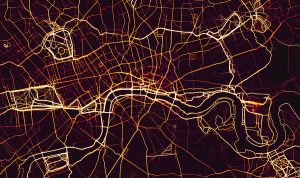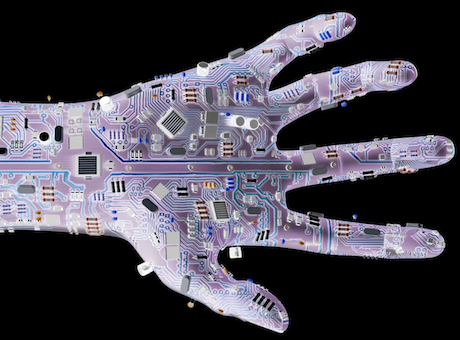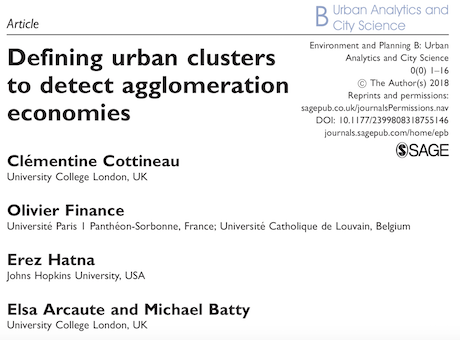deVOL’s Clerkenwell Map
What do you do when you are a boutique retailer, with two showrooms that are both small and are a ten minute walk away from each other, with some interesting but confusing streets in between? If you are in a rush you just screenshot a Google Maps route and stick it on your website, so […]
Continue reading »






 I should not say this but I don’t remember much about writing the attached piece which is entitled ‘Technology and the Democratic Management of Urban Complexity’ but here it is: click here. Published by Acciona and from a book entitled …
I should not say this but I don’t remember much about writing the attached piece which is entitled ‘Technology and the Democratic Management of Urban Complexity’ but here it is: click here. Published by Acciona and from a book entitled …  A new paper from our group. Click here for the paper and also for the issue of Environment and Planning B . Abstract: Agglomeration economies are a persistent subject of debate in regional science and city planning. Their definition turns on …
A new paper from our group. Click here for the paper and also for the issue of Environment and Planning B . Abstract: Agglomeration economies are a persistent subject of debate in regional science and city planning. Their definition turns on …